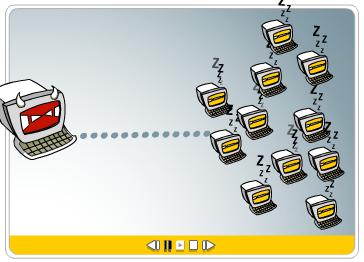Infected Windows 7 RC forms a new botnet
Security experts at Damballa have warned of a new botnet, which is responsible for the pirated version of the Windows 7 release candidate infected with the Trojan.

According to the company, the first computers in the new network appeared on April 24, and from the first of May the network expanded at a speed of several hundred new computers per hour.
On May 10, Damballa recorded the appearance of a command server on the network that transmitted management commands to hacked computers. Now the botnet has up to 27 thousand infected machines, each of which, without the knowledge of the owner, is trying to download additional malicious components from the Internet.
Damballa specialists were able to identify the command center of the network of "zombie" computers and stop connecting new nodes to the botnet. However, attackers can still control previously infected machines. Trojan-infected PCs are distributed all over the world: about a tenth of them are located in the United States, and another seven percent are in the Netherlands and Italy.
It is possible that in the future cybercriminals will try to use the botnet to organize DoS attacks or to send spam.
securitylab

According to the company, the first computers in the new network appeared on April 24, and from the first of May the network expanded at a speed of several hundred new computers per hour.
On May 10, Damballa recorded the appearance of a command server on the network that transmitted management commands to hacked computers. Now the botnet has up to 27 thousand infected machines, each of which, without the knowledge of the owner, is trying to download additional malicious components from the Internet.
Damballa specialists were able to identify the command center of the network of "zombie" computers and stop connecting new nodes to the botnet. However, attackers can still control previously infected machines. Trojan-infected PCs are distributed all over the world: about a tenth of them are located in the United States, and another seven percent are in the Netherlands and Italy.
It is possible that in the future cybercriminals will try to use the botnet to organize DoS attacks or to send spam.
securitylab
